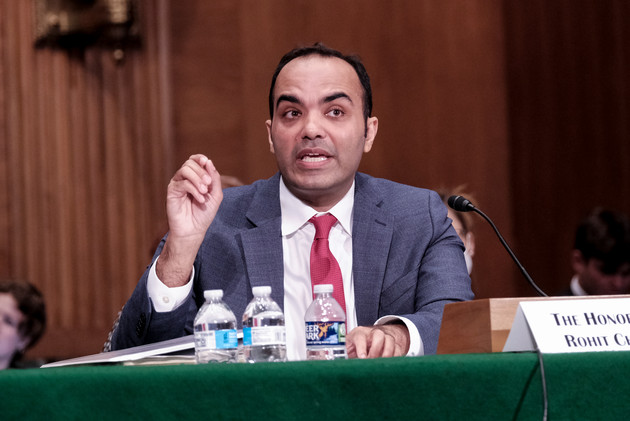
Subheading 1: “President Biden’s State of the Union Pledge Realized as CFPB Caps Late Fees at $8”
In a significant move, the Consumer Financial Protection Bureau (CFPB) has announced a new rule aimed at curbing excessive late fees imposed by credit card issuers. The regulation, unveiled on Tuesday, reduces the maximum late fee from the current level of up to $41 to a cap of $8 for a missed payment. The rule, championed by President Biden, is part of a broader campaign against so-called “junk fees” across various industries.
Subheading 2: “Banks and GOP Push Back, Chamber of Commerce Threatens Lawsuit”
The rule has already faced strong opposition from banks and congressional Republicans, who are vowing to challenge its implementation. Senator Tim Scott, the top Republican on the Senate Banking Committee, announced plans to use the Congressional Review Act process to block the rule, expressing concerns that the fee cap might limit access to credit card products. Industry trade groups, including the Chamber of Commerce, are considering legal action against the CFPB, arguing that the Bureau has exceeded its authority and punishing responsible credit card users.
Subheading 3: “CFPB Director Chopra Estimates $10 Billion Annual Savings for Consumers”
CFPB Director Rohit Chopra defended the rule, emphasizing that it would save consumers an estimated $10 billion annually. In a press release, Chopra stated, “Late fees have gotten out of control,” pointing out that the credit card industry generates over $14 billion in late fee revenue, which exceeds the associated costs by more than five times. The Biden administration highlighted the rule as part of its ongoing efforts to address “corporate rip-offs” and touted it as a key element in saving consumers over $20 billion a year through actions against “junk fees.”
Subheading 4: “Financial Industry and GOP Criticize Rule as Politicized, Threaten Litigation”
Critics, including banking lobbyists and the Bank Policy Institute representing large banks, argue that the CFPB’s decision reflects political motivations and may result in unintended consequences. Some industry voices question whether the projected $10 billion in savings will hold true, suggesting that annual fees and interest rates may rise as a consequence of the rule. The debate over the late-fee rule is part of a broader trend, with the CFPB recently proposing additional regulations targeting overdraft fees in January.
Conclusion: “Late-Fee Rule Implementation Faces Congressional and Legal Challenges”
As the Biden administration pushes forward with its campaign against excessive fees in various industries, the CFPB’s late-fee rule becomes a focal point, setting the stage for a potential clash with Congress and legal battles with industry stakeholders. The regulation, scheduled to take effect 60 days after publication in the Federal Register, marks a significant step toward consumer protection but faces fierce resistance from banking interests and Republicans in Congress.
COMMENTS